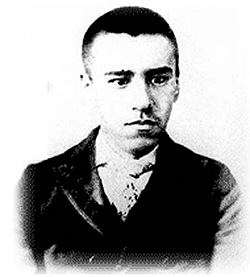Happy New Year! 2025 is finally here. I’m currently enjoying a relaxed time at my family’s home in Tochigi Prefecture.
In my previous post, I took a moment to reflect on my experiences in 2024.
Besides, I introduced『独学と在野の近代』“The Modern Era of Independents and Self-Taught Scholars,” a book about Minakata Kumagusu that Oka reviewed.
In addition to Minakata, this book highlights other historical independent researchers, including Darwin and Marx. It has made me think a lot about how I want to live my life moving forward.
Minakata Kumagusu was a Japanese scholar who studied in America and Britain during the 19th century. However, unlike most scholars of our time, he chose not to associate himself with any academic institution.
Instead, he spent his days observing wildlife and conducting in-depth research at the British Museum Library.
Learning about his life, I found myself thinking, this kind of lifestyle might be ideal for me.
Today, public libraries and the internet provide unparalleled access to knowledge, making it possible to engage in meaningful research even without being part of a formal institution.
With that in mind, I’ve decided that my goal for this year is to live like Minakata Kumagusu.
Who Was Minakata Kumagusu?

Minakata Kumagusu (1867–1941) was a Japanese naturalist, folklorist, and polymath who excelled in a remarkable variety of fields.
He has gained global recognition for his groundbreaking self-directed research on slime molds. His contributions extended far beyond biology.
Minakata was a staunch advocate for preserving Japan’s traditional culture and was an early pioneer in environmental conservation.
Based in Wakayama Prefecture, he worked to protect the natural and cultural heritage of the Kumano Kodo pilgrimage routes. He also became a central figure in the movement opposing the government’s shrine consolidation policy.
In the field of folklore, Minakata is a pioneer alongside 柳田國男 (Yanagida Kunio). His extensive collection of records and essays continues to inspire researchers.
Often described as “a man whose intellect was 100 years ahead of his time,” Minakata lived a life full of fascinating anecdotes and remarkable achievements, making him a figure worth exploring.
My Encounter with Minakata Kumagusu
I first encountered his work during my university years while researching Buddhism for my graduation thesis. To my surprise, I discovered that he had touched upon my research topic.
Until then, I had only thought of him as a biologist, so learning that he had written about Buddhism as well was astonishing.
Even more surprising was the fact that he had read Chinese-translated Buddhist scriptures, demonstrating his mastery of classical Chinese.
This was the first time I saw another side of Minakata, one that extended far beyond his work as a biologist.
I Wanted to Be a Researcher Too
During my university years, I (vaguely) dreamed of becoming a researcher.
I was fascinated by Buddhist literature and wanted to pursue its study. However, I also understood the harsh reality: making a living solely through research would be incredibly difficult.
If pursuing research at a university turned out to be challenging, my plan was to teach Japanese at universities around the world after completing my master’s degree.
This is one of the reasons I obtained my Japanese language teaching certification during my third year of university.
Looking back, my aspirations were somewhat similar to the path taken by Thomas Lockley…
At the time, I believed that research was synonymous with university affiliation. I thought leaving academia would mean giving up on research entirely.
The idea of living a life like Minakata Kumagusu’s felt like a distant fantasy.
The Pandemic Disrupted My Life Plans
Initially, I planned to spend a year on a working holiday in Taiwan and then return to Japan to enroll in graduate school.
However, just as I was preparing to apply for a visa, Taiwan imposed entry restrictions due to the pandemic, and my plans fell apart.
Left with no choice, I began looking for Japanese teaching jobs domestically. Unfortunately, due to the lack of international students at the time, most schools weren’t hiring.
That’s when I stumbled upon an opportunity to teach Japanese online.
The Flexibility of Online Language Tutoring
By chance, I began working as an online Japanese tutor, and it turned out to be a great fit for me. This year marks my forth year in this role.
One of the biggest advantages of this job is the abundance of free time it offers. With no need to commute and often having gaps between lessons, I have plenty of time to focus on other activities.
I typically use this time to eat meals or clean the house, but last year, I frequently spent it reading foreign academic papers.
My routine was staying at my desk, teaching Japanese lessons, immediately restarting research, and then returning to teaching.
In a way, this lifestyle resembles that of a university professor who balances lecturing with research.
Independent Research Is Easier Than Ever
Thanks to modern technology, conducting research and teaching have become more accessible than ever. With just a PC, it’s possible to achieve a great deal without being part of an academic institution.
Publishing Research Online Has Become Accessible
Today, platforms like blogs and social media make it easy for anyone to share research findings. Unlike academic journals, there are no strict limitations on what can be published.
It’s entirely up to the individual whether to publish in English or Japanese. Initially, I translated and summarized existing Yasuke research conducted by others into English in this blog.
Over time, I began conducting my own investigations. Eventually, I started sharing content in Japanese as well, using X’s article feature.
This is truly an era where anyone can become an information provider, and the barriers to sharing research with the world have never been lower.
Accessing Research Materials Has Become Easier
The open-access movement has made many academic papers available online, allowing independent researchers to access international studies.
Tokyo’s National Diet Library, for instance, houses all books published nationwide and is open to the public free of charge.
This has been an invaluable resource, especially since academic books are often prohibitively expensive.
I went there frequently last year since it also holds a large collection of foreign publications.
Engaging in Discussions Has Become Easier
The ability to engage in open discussions is perhaps the most significant development. Social media platforms allow researchers to exchange ideas freely, breaking down traditional academic hierarchies.
This environment creates opportunities for balanced debates where ideas are evaluated on merit rather than credentials.
I believe this represents the ideal evolution of academic discourse.
2024 Was a Year of Many Realizations
Looking back, 2024 was a busy yet fulfilling year filled with valuable insights.
Researching topics like Yasuke and Lockley’s claims was time-consuming, but it was deeply rewarding.
I also enjoyed visiting libraries such as Nihon University’s Faculty of Law for Lockley’s paper, and Tokyo University of Foreign Studies for Sousa’s work.
These trips felt like treasure hunts and added an element of adventure to my research.
Striving to Live Like Minakata Kumagusu
I started this blog to share insights about Japan. I’m pleased to have had the opportunity to correct the pseudo-history about Japan that have been spreading abroad.
Even after resolving the Yasuke debate, I plan to continue researching and sharing valuable findings about Japan.
Minakata Kumagusu has inspired me with a unique way of living. Embracing his approach is my goal for 2025 and beyond.
Wishing everyone a wonderful year ahead—Happy New Year! 🎉



